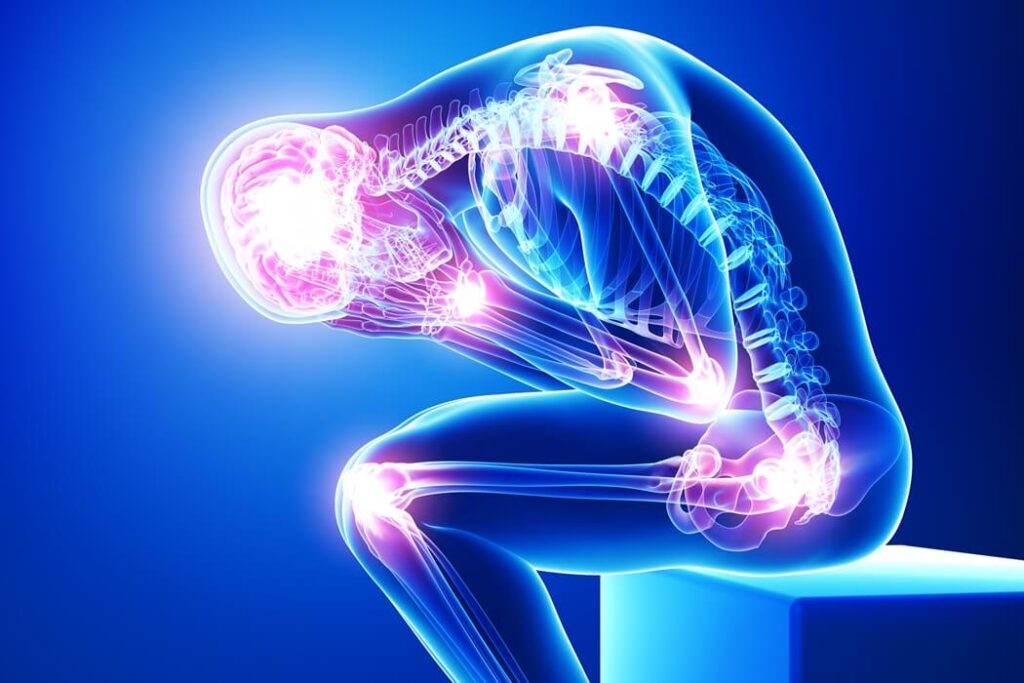
Chronic Pain
Pain Management Services
Slip Disc
Neck Pain
Knee Pain
Joint Pain
Ankle & Heel Pain
Haedache & Migraine
Somatic Pain
Regenerative Medicine
CRPS
Cancer Pain Management

Chronic Pain and Its Treatment
Chronic pain is persistent pain that lasts beyond the expected period of healing—typically longer than three to six months. Unlike acute pain, which is protective and temporary, chronic pain often becomes a condition in itself, affecting physical, emotional, and social well-being.
Characteristics of Chronic Pain:
- Duration: Ongoing or intermittent, lasting several months or more
- Nature: Dull, aching, burning, or shooting—can vary in intensity
- Impact: Often leads to fatigue, sleep disturbances, reduced mobility, and emotional distress
- Common Types:
- Neuropathic pain (nerve-related)
- Musculoskeletal pain (arthritis, back pain)
- Headaches and migraines
- Post-surgical or post-trauma pain
- Fibromyalgia
Treatment Approaches for Chronic Pain
Chronic pain management is multimodal and individualized, often requiring coordinated care across specialties:
1. Medical and Physical Therapies:
- Non-opioid medications (NSAIDs, antidepressants, anticonvulsants)
- Interventional procedures (nerve blocks, injections, radiofrequency ablation)
- Physical therapy and graded exercise
- Regenerative therapies and minimally invasive techniques
2. Psychological Support:
- Cognitive Behavioral Therapy (CBT)
- Acceptance and Commitment Therapy (ACT)
- Biofeedback and stress reduction
- Support groups and counseling
3. Lifestyle and Integrative Care:
- Diet, sleep hygiene, and gentle movement (e.g., yoga or tai chi)
- Occupational therapy for daily activity adaptation
- Complementary approaches like acupuncture, massage, or meditation
- Patient education and self-management tools
Managing chronic pain is not about a single cure but about empowering patients with tools, support, and hope for improved quality of life. At its best, treatment helps individuals regain control, independence, and a renewed sense of wellness.